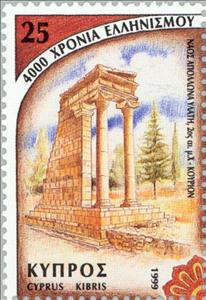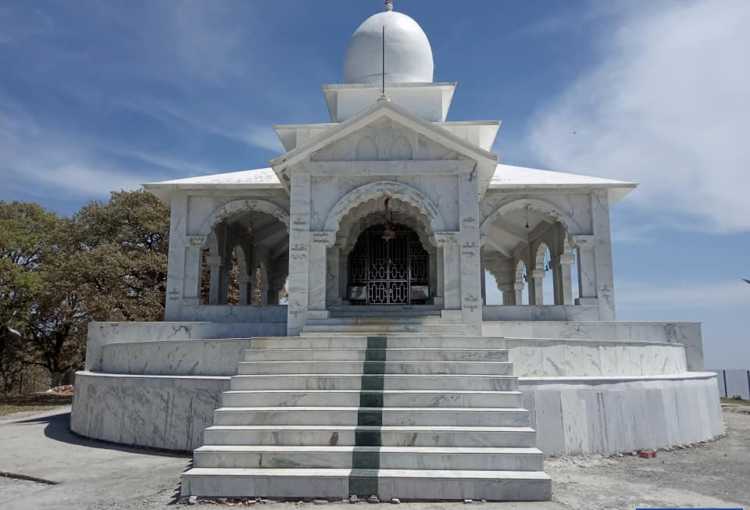Stamp: 4000 Years of Hellenism, Temple of Apollo Ylatis, Cyprus (Cyprus 1999)
4000 Years of Hellenism, Temple of Apollo Ylatis, Cyprus (Cyprus 1999)
28 June (Cyprus ) within release Greek culture goes into circulation Stamp 4000 Years of Hellenism, Temple of Apollo Ylatis, Cyprus face value 25 Cypriot cent
| Stamp 4000 Years of Hellenism, Temple of Apollo Ylatis, Cyprus in catalogues | |
|---|---|
| Michel: | Mi:CY 930 |
Stamp is vertical format.
se-tenant 25c+25c+25c+25c in block of 4Also in the issue Greek culture:
- Stamp - 4000 Years of Hellenism, Temple of Apollo Ylatis, Cyprus face value 25;
- Mini Sheet - 4000 Years of Hellenism, Cyprus and Greek culture face value 16*25;
- Stamp - 4000 Years of Hellenism, Mycaenean amphora, Cyprus face value 25;
- Stamp - 4000 Years of Hellenism, Mycaenean amphora, Greece face value 25;
- Stamp - 4000 Years of Hellenism, Temple of Apollo, Delfi, Greece face value 25;
Stamp 4000 Years of Hellenism, Temple of Apollo Ylatis, Cyprus it reflects the thematic directions:
Archaeology or archeology[a] is the study of human activity through the recovery and analysis of material culture. The archaeological record consists of artifacts, architecture, biofacts or ecofacts, sites, and cultural landscapes. Archaeology can be considered both a social science and a branch of the humanities. It is usually considered an independent academic discipline, but may also be classified as part of anthropology (in North America – the four-field approach), history or geography
A temple (from the Latin word templum) is a building reserved for religious or spiritual rituals and activities such as prayer and sacrifice. It is typically used for such buildings belonging to all faiths where a more specific term such as church, mosque or synagogue is not generally used in English. These include Hinduism, Buddhism, and Jainism among religions with many modern followers, as well as other ancient religions such as Ancient Egyptian religion.
Ruins (from Latin ruina 'a collapse') are the remains of a civilization's architecture. The term refers to formerly intact structures that have fallen into a state of partial or total disrepair over time due to a variety of factors, such as lack of maintenance, deliberate destruction by humans, or uncontrollable destruction by natural phenomena. The most common root causes that yield ruins in their wake are natural disasters, armed conflict, and population decline, with many structures becoming progressively derelict over time due to long-term weathering and scavenging.



